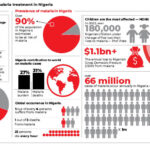Dying of viral hepatitis in Africa is a bigger threat than dying of AIDS, malaria or tuberculosis, the World Health Organisation, WHO, has warned.
In its first-ever scorecard, assessing the prevalence of—and response to—hepatitis, WHO said only three of the 47 countries in the region were on track to eliminate the disease.
Viral hepatitis affects one in 15 people in the region.
The scorecard is to be presented at the first African Hepatitis Summit to be held in Kampala, Uganda from June 18 – 20.
“This analysis is the first to track each country in the region and to assess progress towards the goal of saving the lives of more than two million Africans who may develop progressive hepatitis B or C liver disease in the next decade if countries fail to ramp up their efforts,” says Dr Matshidiso Moeti, WHO Regional Director for Africa.
The prevalence of hepatitis B is estimated at 5.5% in Nigeria, meaning five in 100 people could have it.
That’s more than 9.9 million people nationwide estimated to be chronic carriers of hepatitis B.
In 2015, the prevalence of hepatitis C among children, aged under five, was nearly three in 100 — that’s an estimated 812,000 children.
In the general population, the prevalence for hepatitis C is two in 100 Nigerians.
Nigeria is listed among countries with “highest hepatitis prevalence in children under five,” the scorecard showed.
It is associated with a lack of vaccination against hepatitis at birth and poor coverage for pentavalent vaccination — a five-in-one vaccine that’s supposed to protect children against five diseases, including hepatitis.

 Join Daily Trust WhatsApp Community For Quick Access To News and Happenings Around You.
Join Daily Trust WhatsApp Community For Quick Access To News and Happenings Around You.


